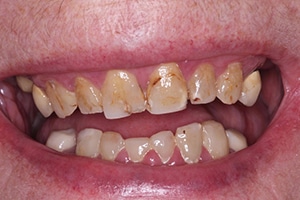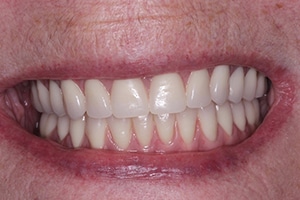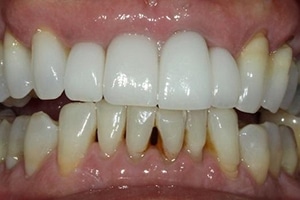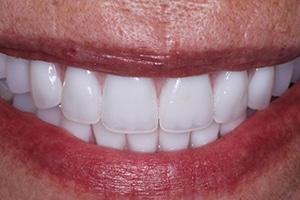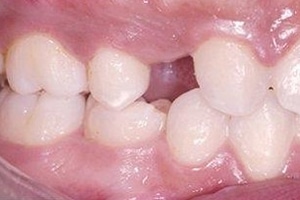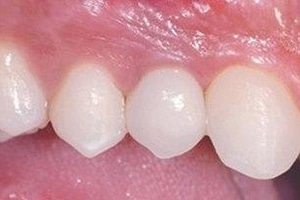Single-Tooth Implants
Welcome to the Charlotte Progressive Dentistry, where we offer several solutions to maintain, enhance, and restore your smile. If you live in the Charlotte, North Carolina, area, our office is the place to go if you have been looking for single-tooth implants. Single-tooth implants are a revolutionary advancement in dental care that provides a solution that offers aesthetic appeal and long-term health benefits. Single-tooth implants may be the solution for you if you have a missing tooth due to a dental accident or tooth decay.

What are Single-Tooth Implants?
Single-tooth implants are designed to replace the lost natural tooth and its root. Unlike dentures or bridges, an implant provides a solitary solution without involving or affecting adjacent teeth. It consists of a titanium post that serves as a new root and a crown that looks and functions like your natural tooth.
Who Should Consider Single-Tooth Implants?
Single-tooth implants are an excellent option for individuals who have lost a single tooth due to various reasons, such as:
- Tooth Trauma: Accidents or injuries can lead to tooth loss. Whether from a sports injury, fall, or other trauma, a single-tooth implant can effectively replace the missing tooth and restore the smile.
- Severe Tooth Decay: Advanced tooth decay or damage that we cannot treat effectively with restorative procedures like fillings or crowns may necessitate tooth extraction. In such cases, a single-tooth implant provides a durable, long-lasting replacement option.
- Periodontal Disease: Gum disease, if left untreated, can lead to tooth loss. Extraction followed by a single-tooth implant can help restore oral health and function when a tooth becomes loose or infected due to periodontal disease.
- Congenital Conditions: Some individuals may be born with missing teeth or develop congenital conditions that affect tooth development. Single-tooth implants offer a reliable solution for replacing congenitally missing teeth and improving aesthetics and function.
- Failed Root Canal Treatment: In cases where a tooth has undergone unsuccessful root canal treatment or developed complications post-treatment, we may recommend an extraction followed by a single-tooth implant to restore oral health and function effectively.
- Dental Fractures: Severe fractures or cracks in a tooth may compromise its structural integrity and require extraction. Single-tooth implants can replace the fractured tooth, providing a stable and durable solution.
- Cosmetic Concerns: Some individuals may opt for single-tooth implants for purely cosmetic reasons, such as improving the appearance of a misshapen or discolored tooth. Implants can enhance the overall aesthetics of the smile by seamlessly blending with natural teeth.
Anyone who has lost a single tooth and desires a permanent, natural-looking solution should consider single-tooth implants as a viable option for restoring their smile and oral function. Scheduling a consultation with our excellent dentists, Dr. Gregory Camp or Dr. Susana Junco, is the best way to determine if implants are the right choice based on individual needs and circumstances.
Who is a Candidate for Single-Tooth Implants?
Candidates for single-tooth implants typically exhibit certain characteristics and meet specific criteria to ensure the success of the implant procedure. While each case may vary, here are some general factors that determine candidacy for single-tooth implants:
- Sufficient Bone Density: Adequate bone density in the jaw is crucial to support the implant and ensure its stability. Candidates must have enough bone volume in the implant site to accommodate the implant and allow for successful osseointegration—the process by which the implant fuses with the surrounding bone tissue.
- Good Oral Health: Candidates should have good oral health, including healthy gums and no active periodontal disease. To minimize the risk of complications, any existing dental issues, such as decay or gum disease, should be addressed before implant placement.
- Healthy Gum Tissue: Healthy gum tissue is essential for the success of single-tooth implants. Candidates should have adequate gum tissue surrounding the implant site to support proper healing and integration. In cases of insufficient gum tissue, gum grafting may be recommended to augment the area before implant placement.
- Commitment to Oral Hygiene: Candidates must maintain excellent oral hygiene practices following implant placement. Proper oral care, including regular brushing, flossing, and dental check-ups, is essential to prevent complications such as infection or implant failure.
- Non-Smoker or Willingness to Quit Smoking: Smoking can significantly impair the healing process and increase the risk of implant failure. If you smoke, we may advise you to quit or reduce smoking before undergoing implant surgery to improve the chances of successful outcomes.
The Single-Tooth Implant Procedure
- Consultation and Planning: The process begins with a detailed examination and discussion about your dental history, followed by imaging studies to assess bone quality and structure.
- Implant Placement: Under local anesthesia, we will surgically place the titanium post into the jawbone where the tooth is missing. A healing period, or osseointegration, follows, allowing the implant to bond with the natural bone.
- Abutment Placement: Once healed, a small connector – an abutment – is placed on top of the dental implant to hold and support your new tooth.
- Crown Attachment: Finally, a custom-made crown, matched to the color of your natural teeth, is attached to the abutment.
- Follow-Up Care: Aftercare appointments ensure the implant is functioning correctly, and we’ll provide guidance on how to care for your new tooth.
Caring for Your Single-Tooth Implant
After getting a single-tooth implant, proper aftercare is crucial for successful healing and long-term maintenance. Here’s a general guideline for aftercare:
- Follow post-operative instructions: Dr. Gregory Camp or Dr. Susana Junco will provide specific instructions tailored to your situation. Follow them diligently to ensure proper healing.
- Soft diet: Follow a soft diet for the first few days after surgery. Avoid hard, crunchy, or sticky foods that may irritate the surgical site.
- Oral hygiene: Maintain good oral hygiene to prevent infection. Brush gently around the surgical area, avoiding direct contact with the implant site for the first few days. Rinse your mouth with warm saltwater several times daily to keep the area clean.
- Avoid smoking and alcohol: Smoking and alcohol can interfere with healing and increase the risk of complications. Avoid them during the healing process.
- Attend follow-up appointments: Schedule all appointments with Dr. Camp or Dr. Junco. They will monitor your healing progress and make any necessary adjustments.
Advantages of Single-Tooth Implants
- Natural Appearance: Single-tooth implants are designed to look and feel like natural teeth. They are customized to match the color, size, and shape of your existing teeth, creating a seamless smile. Unlike traditional bridges, implants do not require alteration of adjacent teeth, preserving your natural tooth structure.
- Improved Functionality: Implants restore the full function of your missing tooth, allowing you to chew, speak, and bite with ease. Unlike removable dentures, implants are securely anchored in the jawbone, providing stability and preventing slippage or discomfort while eating or talking. This enhanced functionality contributes to better oral health and overall well-being.
- Long-term Solution: Single-tooth implants offer a durable and long-lasting solution for tooth replacement. With proper care and maintenance, implants can last for decades or even a lifetime, making them a cost-effective investment in oral health. Unlike dental bridges, which may need replacement over time, implants provide a permanent solution without periodic adjustments.
- Preservation of Jawbone: When a tooth is lost, the underlying jawbone can deteriorate over time due to lack of stimulation. Single-tooth implants stimulate the surrounding bone tissue, preventing bone loss and preserving the natural contours of your jaw. This helps maintain facial structure and prevents the sunken appearance often associated with missing teeth.
- Enhanced Confidence and Self-esteem: A missing tooth can impact your confidence and self-esteem, affecting your social interactions and overall quality of life. Single-tooth implants restore your smile and confidence by filling the gap seamlessly, allowing you to smile, laugh, and speak confidently without worrying about gaps or gaps in your teeth. This boost in self-esteem can positively impact various aspects of your life, including relationships and career opportunities.
Single-Tooth Implants in Charlotte, NC
At Charlotte Progressive Dentistry, we’re committed to providing advanced dental care in a comfortable and compassionate environment. Single-tooth implants represent just one of the ways we help our patients achieve and maintain optimal oral health. We invite you to contact us if you’re considering an implant or have further questions. Together, we can determine if a single-tooth implant is the right choice for you. Remember, a beautiful and functional smile is within reach—schedule your consultation with our dental team in Charlotte today!
